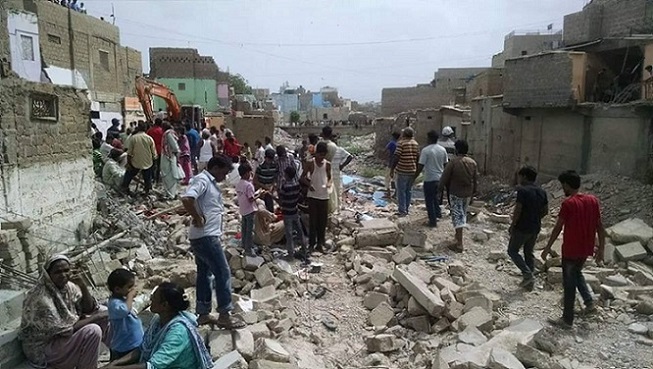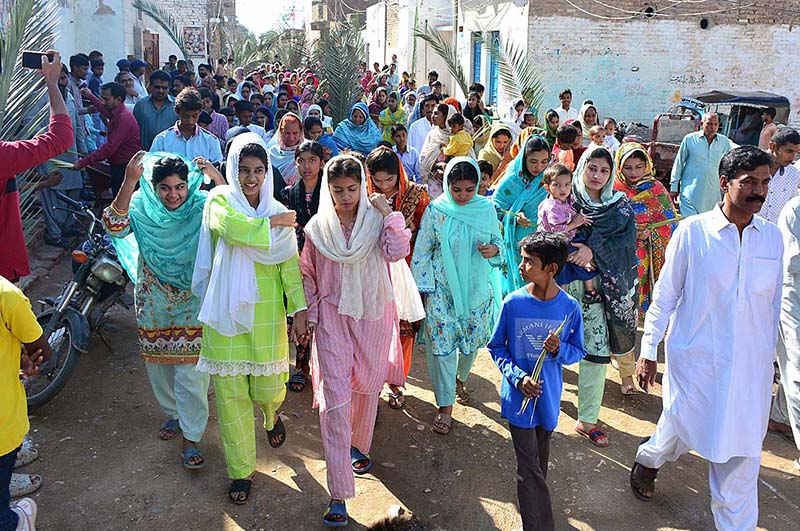
While rural development remains a focal point for stakeholders, the challenges faced by urban centers, call for the design of urban community-driven development projects
Zaheer Udin Babar Junejo
Since gaining independence, urban centers in Pakistan have consistently emphasized the industrial revolution. In the earlier years, the agriculture sector in rural areas also experienced a significant boom. However, over the past decade, the divide between rural and urban areas appears to be widening, primarily due to poor governance and natural disasters. The agriculture sector is facing challenges with low income and high input costs, while industrial production costs are escalating too. Consequently, both urban and rural citizens are compelled to seek alternative means of livelihood. The transitional phase is affecting everyone adversely.
On the first day of 2024, I had the honor of attending a community meeting in Latifabad, Hyderabad. The gathering was held at the office of the Union Council Chairman and saw active participation from the Christian community. The event, organized by the Fast Rural Development Program (FRDP), aimed to enhance urban food security in Hyderabad. Upon entering the colony, we noticed men and women returning from church prayers. Most people were peacefully walking along the road, while we were the sole occupants on four wheels. The deteriorated road bore witness to poor governance, indicating it had never been a priority for city planners and development initiatives. The local Chairman, dressed in traditional attire, warmly welcomed us. During our discussion, we emphasized the need for a long-term, people-centric program for urban development. We agreed that such initiatives require time and influence at both political and administrative levels. Community involvement, particularly of youth and women reporting violations of citizen rights and responsibilities, was also deemed essential.

The marginalized populations encounter heightened difficulties in accessing essential services, securing employment, and maintaining stability in their lives.
In these urban slums of Hyderabad, economic hardships, reduced employable opportunities, post-flood migration influx, and inadequate infrastructure compound the difficulties faced by residents. The aftermath of the 2022 flood triggered internal migration, displacing families and disrupting the supply side. The poor economy exacerbates the struggle for necessities, and the absence of reliable mechanisms only intensifies the challenges. Among the most affected are minority communities and vulnerable groups, including widows, orphans, and individuals with disabilities. These marginalized populations encounter heightened difficulties in accessing essential services, securing employment, and maintaining stability in their lives. The unavailability of trustworthy service mechanisms further deepens vulnerabilities within these urban slums. This dire situation disproportionately affects those who are already marginalized, making it imperative to address these issues through targeted and inclusive interventions.
Over the past decade, the divide between rural and urban areas appears to be widening, primarily due to poor governance and natural disasters
The local children warmly welcomed us with a delightful song and dance performance, along with presenting flowers. Ms. Aisha provided a concise overview of FRDP and the project. I delved into the importance of civic partnership, productive community engagement, reinforced feedback, and community participation for achieving sustainable results. I highlighted FRDP’s significant contributions over the past one-and-a-half decades across Pakistan.
Also read: Sindh’s Imbalanced Urbanization: Seeking Sustenance through Revival of Historic Urban Centers
FRDP, with its focus on the water and sanitation sector in Hyderabad, is addressing challenges in urban slum areas, where 79% of the population dispose of waste in the streets. This necessitates the provision of sweepers and dustbins, converting waste into an opportunity for community waste collectors to earn for their families and contributing to positive change by capacitating local leadership on social behavior in slum areas. Interacting with communities revealed that community-driven development cannot solely rely on the support of NGOs and CSOs; it requires ownership and active participation from government and political leadership. While rural development remains a focal point for stakeholders, the challenges faced by urban centers, including market price control, employability, safety, security, law and order, and access to food and medicines, call for the design of urban community-driven development projects. These projects should empower communities and engage all stakeholders efficiently. I commend FRDP and its partners for targeting these specific urban areas, as this approach will not only improve health outcomes but also empower communities to adopt sustainable practices with a lasting impact. To conclude the event, Ms. Aneela, the Project Manager, and the UC Chairman initiated Christmas celebrations by cutting a cake and distributing gift hampers among the participating children.
______________
 Zaheer Udin Babar Junejo, based in Hyderabad, is a specialist in Institutional Development, MEAL, and Fundraising. linkedin.com/in/zaheer-udin-babar-junejo-0a30a9152
Zaheer Udin Babar Junejo, based in Hyderabad, is a specialist in Institutional Development, MEAL, and Fundraising. linkedin.com/in/zaheer-udin-babar-junejo-0a30a9152